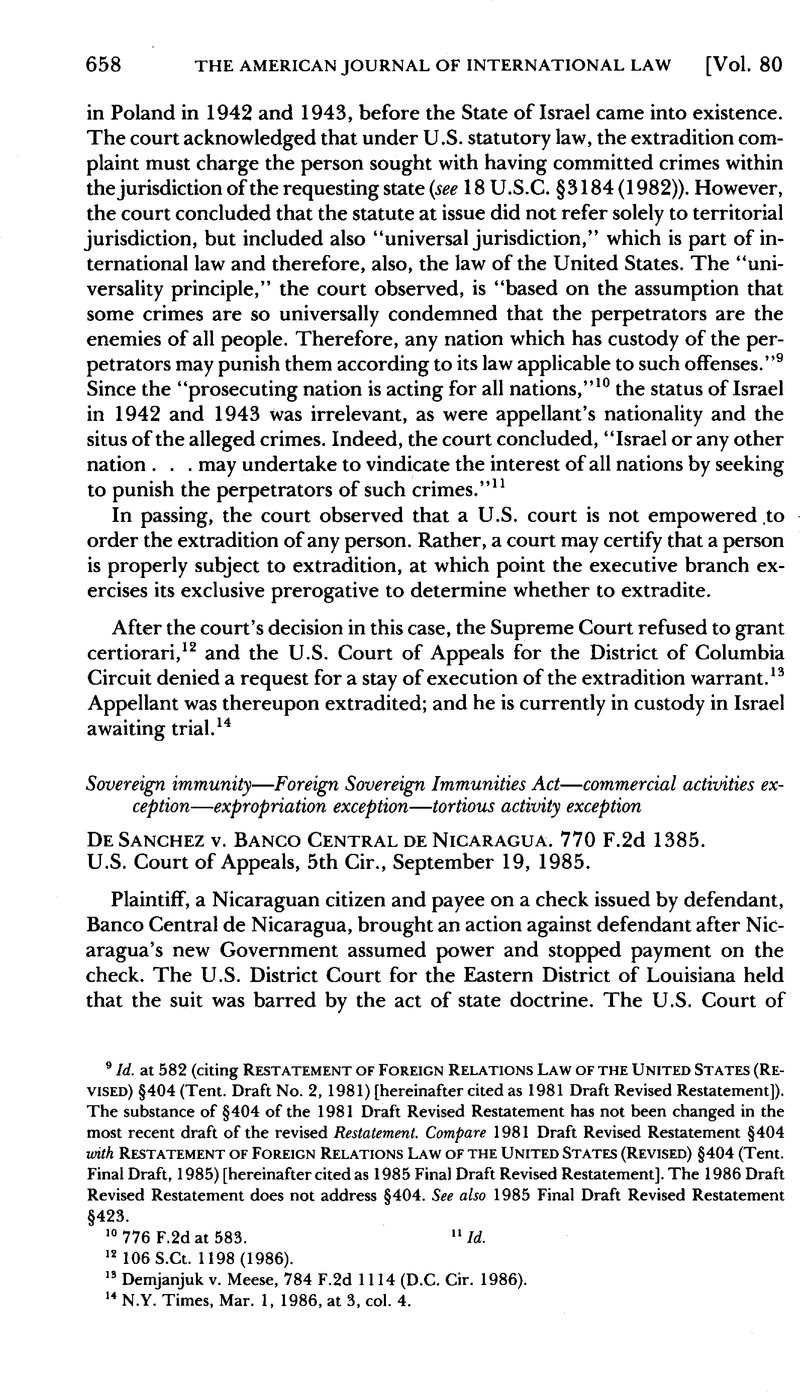No CrossRef data available.
Published online by Cambridge University Press: 27 February 2017

1 28 U.S.C. § 1605(a)(2). The commercial activity exception to the FSIA states that a foreign state is not immune from suit where
the action is based [1] upon a commercial activity carried on in the United States by the foreign state; or [2] upon an act performed in the United States in connection with a commercial activity of the foreign state elsewhere; or [3] upon an act outside the territory of the United States in connection with a commercial activity of the foreign state elsewhere and that act causes a direct effect in the United States.
2 28 U.S.C. §1605(a)(3). Under the expropriation exception to the FSIA, a state is not immune from any suit in which “rights in property taken in violation of international law are in issue.”
3 28 U.S.C. §1605(a)(5). The “tortious activity” exception to the FSIA denies immunity to a state sued for tortious conduct that causes damage to property in the United States.
4 770 F.2d 1385, 1393. The court acknowledged that in differentiating sales of dollars by defendant from sales by private banks, it relied on the purpose motivating the sales—as opposed to the nature of the activity as required by the FSIA. See 28 U.S.C. § 1603(d). However, the court did not interpret § 1603(d) as “bar[ring] us totally from considering the purposes of different types of activities.” Moreover, defendant’s “purpose in selling dollars—namely, to regulate Nicaragua’s foreign exchange reserves—was not ancillary to its conduct; instead, it denned the conduct’s nature.” 770 F.2d at 1393.
5 770 F.2d at 1394.
6 Id. at 1395.
7 Id. at 1397.
8 In several cases brought against the United States, the courts have rejected attempts by the plaintiff to characterize taking claims as torts. See, e.g., Myers v. United States, 323 F.2d 580 (9th Cir. 1963); Roman v. Velarde, 428 F.2d 129, 132 n.5 (1st Cir. 1970).